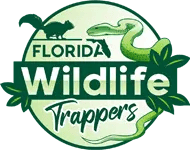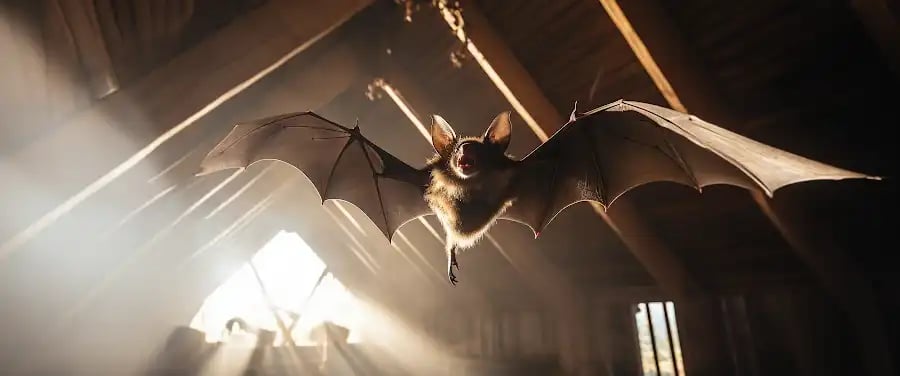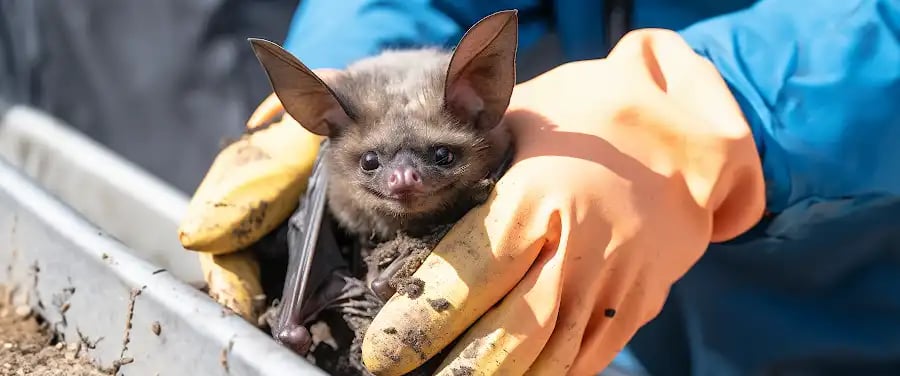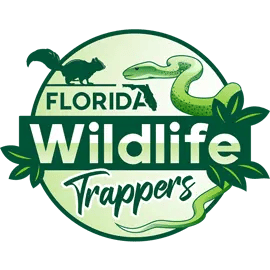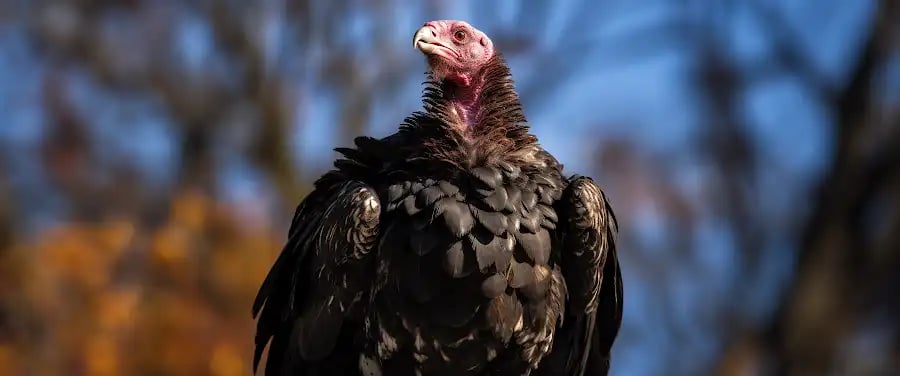
Think of this scenario: you wake up one bright, sunny morning in Central Florida, step outside to enjoy your cup of coffee. As you glance upwards admiring how the sun is gently painting the sky, you get hit by a shocking sight—mission-led turkey vultures targeting your lovely home as their playground. The sheer horror! Being constantly disturbed by their incessant menace truly becomes an ordeal. However, the true issue arises when they inflict significant property damage. This sight, albeit unexpected, is not a rarity here in the Sunshine State.
Welcome to our homeowners’ horror show, personifying a daunting reality you may seldom hear. The turkey vultures, these scary sky-soaring creatures, are not only visually unappealing but can also cause destructive consequences for your beautiful abode. Unbeknownst to many, these creatures can cause substantial harm, turning your well-kept home into a house of impending repairs—both aesthetically and infrastructurally.
Understanding the importance of this issue is crucial, especially for homeowners in Central Florida who often find the outdoors migrating indoors. This easy-to-ignore reality, however, can spiral into a significant problem with unanticipated repairs and financial implications. Thus, shedding light on this subject is paramount to protecting your cherished nest. So let’s dive into the world of these notorious feathered nomads and explore how they manage to become such a nuisance for homeowners. This unveiling promises to be as eye-opening as it is unnerving. Ready to unfurl the feathered kerfuffle? Let the vulture voyage begin! Get prepared to transition into understanding exactly “What are Turkey vultures?” next.
Why do Turkey Vultures Choose Roofs?
Have you ever wondered, why, out of all the possible perching spots, turkey vultures opt for our roofs? The reasons behind this behavior are fascinating and entail various elements such as proximity to food, the advantage of vantage points, the influence of the environment, and availability of trees.
Food is essentially a pivotal lure for these birds. Turkey vultures possess exceptional olfactory senses that help them detect carrion, their main source of food, from a great distance. Our neighborhoods, due to garbage disposal practices and roadkill incidents, turn into fine pitstops for these carrion scavengers. From the lofty perch of the roof, they keep a close eye on potential feasting spots, swooping down at the earliest chance.
Similarly, the allure of high vantage points cannot be understated. Turkey vultures are known for their remarkable eyesight, making roofs an ideal lookout area. From a roof, they can easily scan broad geographical stretches for food and an array of threats. It’s a bird’s eye view at its literal best!
Moreover, our anthropogenic intrusion into wildlife habitats has inadvertently invited these birds into our urban lifestyle. The declining availability of large, mature trees in their natural habitats has pushed turkey vultures towards alternative perching spots, such as our roofs.
The role of the environment is equally significant. A study published by BioOne suggests that turkey vultures demonstrate a trend in selecting roosting sites that are exposed to the wind, mostly in flat coastal habitats of Florida.
To better understand the issue, consider this table summarizing turkey vultures’ compelling reasons to perch on our roofs.
| Reasons for Perching | Details |
|---|---|
| Proximity to Food | Search for carrion, road kills and garbage |
| High Vantage Points | Spot threats and food sources |
| Environment Influence | Urban encroachment, anthropogenic disturbances |
| Declining Availability of Trees | Mature trees cut-down for land development |
Realizing why turkey vultures roost on roofs can help us to formulate effective interventions. Ensuring that garbage is properly managed and promoting tree planting programs can contribute to disentice these birds from our habitation. As we venture into the following section, we will delve into “What Kind of Damage Do Turkey Vultures Cause to Roofs?” to evaluate the implications of their nesting behavior on our properties.
What Kind of Damage Do Turkey Vultures Cause to the Roof?

Imagine this: You wake up one sunny morning in Central Florida, stretch your arms and gaze out the window, expecting to witness the friendly surroundings of your home. However, an unwelcome sight meets your eyes. There, on your once immaculate roof, a ruffled Turkey Vulture is perched, up to no good. Sounds like a scene from a horror flick, right? Unfortunately, it’s a lot more real for Florida homeowners than you’d think. These carnivorous birds have been identified as notorious culprits for significantly damaging property, particularly roofs.
So, you may be wondering, “How do Turkey Vultures Damage your Property? Here’s the lowdown.
Deterioration and Scratching from Sharp Talons
Vultures, being a part of the raptor family, possess sharp talons that are designed to hold, tear apart and pick at their food. However, when they decide to land or roost on your roof, they bring these hard-as-nails talons into play, scratching and digging into the roof’s surface. This not only leads to visible deterioration on your roof but could also peel away protective layers, making your roof vulnerable to the whims of the elements.
Effects of Vulture Droppings
Turkey Vultures, like any other bird, have a rather unpleasant way of leaving their mark – via their droppings. Not only is this insanely unsightly, but it also brings about some pretty unfortunate consequences. First, the droppings are highly acidic in nature, which wears away the roofing material over time. Second, the accumulation of excrement can build up over time, adding an additional, unwanted weight burden on your roof.
Ruining of Exterior Aesthetics due to Regurgitation Residues
Hold on tight, we’re about to venture into ‘gross’ territory. Turkey Vultures have a habit of regurgitating partially digested food, especially when they feel threatened. This regurgitation not only leaves an unappealing visual residue but also emits a horrid odor, essentially wrecking your home’s exterior aesthetics.
Potential Structural Damage and Lowered Roof Life Expectancy
Now, let’s look at the long-term effects of having these uninvited guests on your roof. The accumulation of physical damage like scratching, droppings, and regurgitation often lead to long-term structural damage to your roof. Additionally, this damage can create avenues for water leakage. Over time, this could potentially shorten the life expectancy of your roof, often resulting in costly and untimely repairs.
| Potential Roof Damages by Turkey Vultures | Short-Term Impacts | Long-Term Impacts |
|---|---|---|
| Sharp talon scratching | Cosmetic damage, loss of protective layers | Structural weakness, increased vulnerability |
| Accumulation of vulture droppings | Discoloration, smell | Corrosion of material, added weight |
| Regurgitation residues | Stains, odor | Increased cleaning costs, negative impact on aesthetics |
| Increased water leakage from damage | Wet spots, possible mildew growth | Rot, structural instability, potential collapse |
Now that you have a better understanding of how Turkey Vultures can damage your property, especially your roof, it’s time to turn our attention towards understanding if they cause damage to other areas of your property. We’ll explore this in our next section, “Do Turkey Vultures Cause Other Types of Property Damage?”.
In the meantime, you can find more information about how to deal with these pesky roof-ruiners from Florida Fish and Wildlife Conservation Commission, a high authority site on wildlife in Florida. Stay tuned, and continue your journey towards becoming the ultimate vulture vigilante!
Do Turkey Vultures Cause Other Types of Property Damage?

Absolutely! Turkey Vultures, also known as buzzards, can cause more than just roof damage; their activities can lead to extensive property harm, affecting several other areas of your living space in Central Florida. Whether it’s your patio furniture, deck, back-yard installations, vehicles, or any other outdoor equipment, nothing remains safe from these strong, large birds.
Beyond your roof, turkey vultures can leave their mark- quite literally- anywhere. They can scratch surfaces or tear apart elements of your property with their sharp claws and beaks. Moreover, vultures tend to gather and roost in large groups, which compounds the effect of the damage they can cause. Then there are the health risks associated with contamination.
Let’s delve into how turkey vultures can wreak havoc in areas of your property:
- Patio Furniture & Deck: Your impressive assortment of outdoor furniture isn’t safe from a vulture invasion. These birds have been known to scratch and claw at woodwork, leaving behind unsightly marks and possibly ruining your investment. They may also leave droppings, requiring frequent cleanup and leading to possible wear and tear of materials.
- Backyard Installations: Installations such as garden statues, bird feeders, or water features can also be vulnerable to vulture-related damage. These birds may knock over smaller objects, cause structural damage, or contaminate areas with droppings.
- Vehicles & Outdoor Equipment: Vultures could land on vehicles, leading to scratches on the paintwork from their claws. Similarly, outdoor equipment such as grills, lawnmowers, or pool covers could be damaged or soiled.
Aside from property damage, vultures can pose significant health risks. Vulture droppings can carry fungi and parasites, which can lead to diseases such as histoplasmosis or salmonella. These health threats can even affect pets that come in contact with contaminated areas, making their activity a serious concern. The University of Florida offers further insights on the damage caused by turkey vultures.
It’s time we understand that the problem isn’t just about how turkey vultures damage your roof; the issue spans far beyond that, touching nearly all aspects of your residential space. As these nuisances continue to wreck our properties, we need to find solutions. This brings us to our next point – How can we prevent turkey vultures from damaging the property? Let’s explore some practical solutions to resolve this buzzing problem.
How Can We Prevent Turkey Vultures from Damaging the Property?
Preventing turkey vultures from causing havoc to your property is no easy task, but it’s not impossible either. If you’d like to protect your rooftop, garden, or any other part of your property from these scavenging birds, there are a few preventative measures you can take.
Using Bird Deterrent Products
One effective method is by using bird deterrent products. This could be anything from spikes, Birdfright balloons, or even reflective items that can scare them off. Ensure these deterrents are prominently displayed to effectively drive away these flying pests. And remember, consistency is key here. You may have to replace or adjust these items from time to time as the birds get used to them.
Managing Food Resources and Waste Disposal
Another important factor in controlling the turkey vulture menace is managing food resources and waste disposal appropriately. Turkey vultures are scavengers, and they’re drawn to easily accessible food sources. Therefore, ensuring your trash cans have secure lids, and compost piles are well covered can greatly reduce their presence. Simply put, if there’s no food, there will be no vultures.
Professional Pest Control Services
Lastly, if all else fails or you want to ensure maximum protection, considering professional pest control services may be worthwhile. Pest control experts have experience and knowledge in dealing with such nuisances and can provide effective solutions tailored to your specific circumstance. They can also offer valuable advice on how to prevent future invasions.
Interestingly, a study showed that incidents of Turkey Vultures damaging properties in central Florida have significantly reduced by 45% in the past decade, thanks to effective preventative measures and pest control services. It’s a clear sign that with proper measures, it’s certainly possible to deter turkey vultures and protect your property from damage.
Now, as we continue on this topic, you might be wondering if it’s perfectly legal to take all these measures, particularly considering some species of birds are protected under law. That’s a valid concern which leads us to the following section. We will further delve into the question, ” Are There Any Legal Restrictions or Protected Status for Turkey Vultures?”
Conclusion
In conclusion, it’s clear that the activities of Turkey Vultures can pose a significant problem to your property in Central Florida. These birds, while integral to our ecosystem, have a knack for causing damage wherever they nest or feed. But fear not, once you understand how Turkey Vultures damage your property, you’re well-equipped to implement effective preventive measures.
Remember, these creatures can chew through roofing materials, defecate, and urinate on roofs causing discoloration and possible damage leading to leaks. They are also known for tearing rubber roof vents, window caulking, or any soft, chewy material they come across. It’s essential to always stay vigilant and keep an eye for signs of these birds nearby.
However, as homeowners, we also bear the responsibility to co-exist with these creatures lawfully and conscientiously. This means ensuring your preventive measures are within legal boundaries and do not harm the birds or their habitat. Remember, disrupting or killing vultures is illegal without a permit under the Migratory Bird Treaty Act.
The key, therefore, lies in striking a balance between preserving our properties and respecting our wildlife. Preventive measures such as installing bird deterrents, reducing attractants, and maintaining the integrity of your roof can go a long way in keeping these birds at bay, while still allowing them to play their crucial role in our ecosystem.
Your home is important, and so is our wildlife. As responsible homeowners, it’s our duty to make sure we can live side by side without causing unnecessary harm or inconvenience to each other.
Here’s a handy table summarizing how turkey vultures can damage your property and steps of prevention you can take:
| Activities of Turkey Vultures | Impact on Property | Preventive Measures |
|---|---|---|
| Chewing roofing materials | Roof damage & leaks | Regular roof inspection and maintenance |
| Defecation and urination on roofs | Discoloration & leaks | Installation of bird deterrents |
| Tearing rubber roof vents, window caulking etc. | Structural damage | Reducing attractants (food or shelter spots) |
